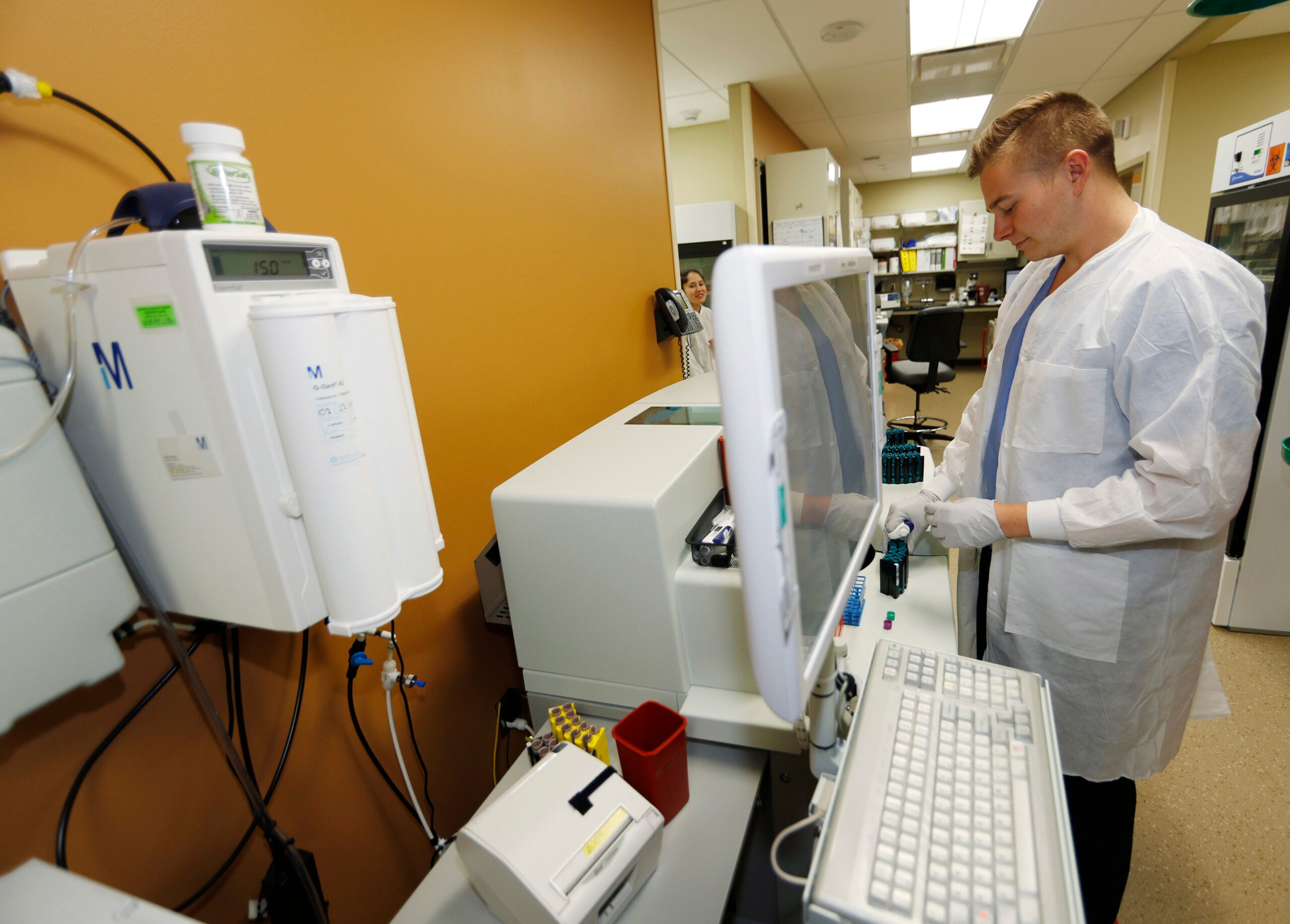An annual survey of child care prices shows costs have increased faster than in previous years, leaving fewer affordable options for Wisconsin families.
The Child Care Market Survey from the state Department of Children and Families found 50 percent of child care slots were considered affordable in December 2023.
It’s a significant decline from the 74 percent of child care slots that were considered affordable in the previous year.
News with a little more humanity
WPR’s “Wisconsin Today” newsletter keeps you connected to the state you love without feeling overwhelmed. No paywall. No agenda. No corporate filter.
The agency reported the monthly price for infant care at child care centers increased by an average of 11 percent from 2022 to 2023, while family-based care increased by an average of 14 percent.
The annual survey defines affordability based on the maximum subsidy offered to families through the state’s Wisconsin Shares program. But DCF Secretary Emilie Amundson said only a small number of families receive that assistance.
“If you polled families across the state of Wisconsin, there are very, very few families that would say, ‘I can comfortably afford child care in my community,’” she said.
For urban counties like Milwaukee, Dane, Brown and La Crosse, the median price for full-time infant care was $325 per week, or $16,900 annually. In most rural counties, the median price was $200 per week, or $10,400 annually.
Amundson said the decline in affordable options is not a surprise for those who work in the industry, which has struggled for years to offer competitive wages in order to attract enough staff.
“We’ve known for a long time that the child care industry is in massive need of assistance from the state and from federal partners in helping to stabilize their costs,” she said. “It’s an industry that really, really struggles to make ends meet, and some even call it a broken funding system.”
Child care providers raise rates as state assistance declines
In 2020, the state worked to stabilize child care prices by creating the Child Care Counts program using federal pandemic response funding. Payments under the program were cut half in May 2023, and the Republican-led state Legislature did not approve $340 million proposed by Gov. Tony Evers to continue the program.
Ruth Schmidt, executive director of Wisconsin Early Childhood Association, said the subsidies kept child care providers from having to raise their prices at a time when most costs were increasing, like housing, groceries and utilities.
“It was 100 percent anticipated that you would see child care programs need to raise their rates in response to the fact that Child Care Counts funding was cut in half,” she said, adding that the number of affordable slots has likely declined even more since the survey was done in December.
Schmidt said the child care industry is experiencing a “market failure,” in which providers need to hire more staff to meet the demand from families but are unable to raise their prices in order to cover more competitive wages.
“Parents simply are tapped out,” she said. “They cannot pay more for this care, especially when you’re talking about income-constrained families.”
In recent months, Wisconsin providers have seen more families pulling their children from care because of increased prices, Schmidt said. That means more parents, especially women, are sitting out of the workforce.
She said child care needs to become a “public good,” with funding coming from parents, state and federal governments and employers, in order to make the industry more sustainable moving forward.
Wisconsin Public Radio, © Copyright 2025, Board of Regents of the University of Wisconsin System and Wisconsin Educational Communications Board.







